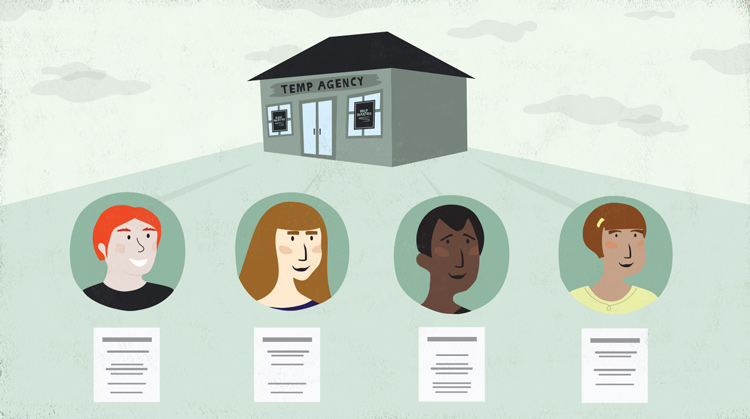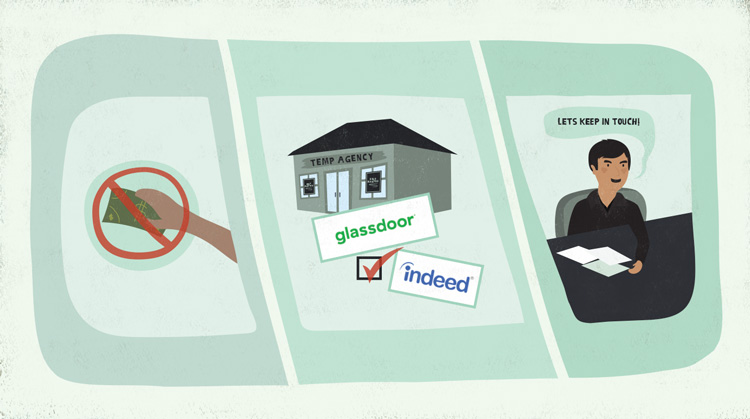Freelance Work -
What is a Temp Agency?

Freelance Work
What is a Temp Agency?


/en/freelance-work/what-is-a-temp-job/content/

If you're interested in working a temp job, the process is a bit different from a permanent job. Unlike traditional employment, you usually can't apply directly to a company for a temp job. Instead, you'll need to go through something called a temp agency. This is a recruiting agency that hires employees based on their skills and assigns them to various time-limited positions with other companies.
Watch the video below to learn more about temp agencies.
Typically, companies hire temp agencies when they have a temporary role they need to fill. Based on the needs of these jobs, agencies look at their applicants and current pool of temp workers to determine who would be a good fit based on their experience. If your skills and experience match a job description, they'll assign you to that role and send you to work at that company.
Once assigned, you'll be given a schedule, pay rate, and estimated timeframe for how long the job will last. Even though you'll be working with a specific company, you're still technically working for the agency. This means all of your paychecks will come from the agency, even though your duties and timeframe are determined by the company.
Once your assignment is over, you can work with the temp agency to find another job. In some cases, they may be able to place you in a new temp job right away. In other cases, there may be some downtime between jobs. This depends on the temp agency, your location, your skill set, and several other factors.
The process described above may vary from agency to agency, but this is the general flow for most of them. Be sure to ask questions when shopping around for a temp agency.
The process for getting started with a temp agency is similar to traditional employment: You need to apply. This will likely include completing an application. If the temp agency decides to move forward, you'll have an interview. Depending on the field, you may also be required to take an assessment, which allows the agency to test your knowledge on computer programs, field-specific subjects, and other subjects.
In a standard job interview, the company wants to see if you'd be a good fit. However, temp agencies are looking to see if your skill set matches the various roles they're trying to fill. If your experience is a good fit, they'll contact you with a potential assignment to get started.

When deciding on a temp agency, there are several things you'll want to consider. If the agency is asking you to pay a fee for any services or resources, you may not want to use that particular agencies. Temp agencies are paid by the companies who hire them, not their temp workers. They may be trying to scam you if they're asking you to pay for anything.
On a related note, it's important to make sure an agency is reputable and reliable, so you'll want to do some research before making a decision. Some agencies also specialize in certain fields, so you'll want to find one that best accommodates your needs. You can often find reviews and more information on social media sites and job boards like Indeed and Glassdoor.
If a temp agency isn't professional, organized, and informative, this can also be a red flag. Make sure they're knowledgeable about the jobs they want to assign to you. They also shouldn't rush you to take a position; you want to make sure they have your best interests at heart. Once you've been given a position, they should keep in touch and check in with you to make sure everything's going well. Not every agency does this, but it's best to find the ones that do.
Now that you know a bit more about temp agencies, we hope you have a better grasp of whether a temp job is right for you. If you feel like other career options might be more fitting, review our Work & Career tutorials for more ideas.